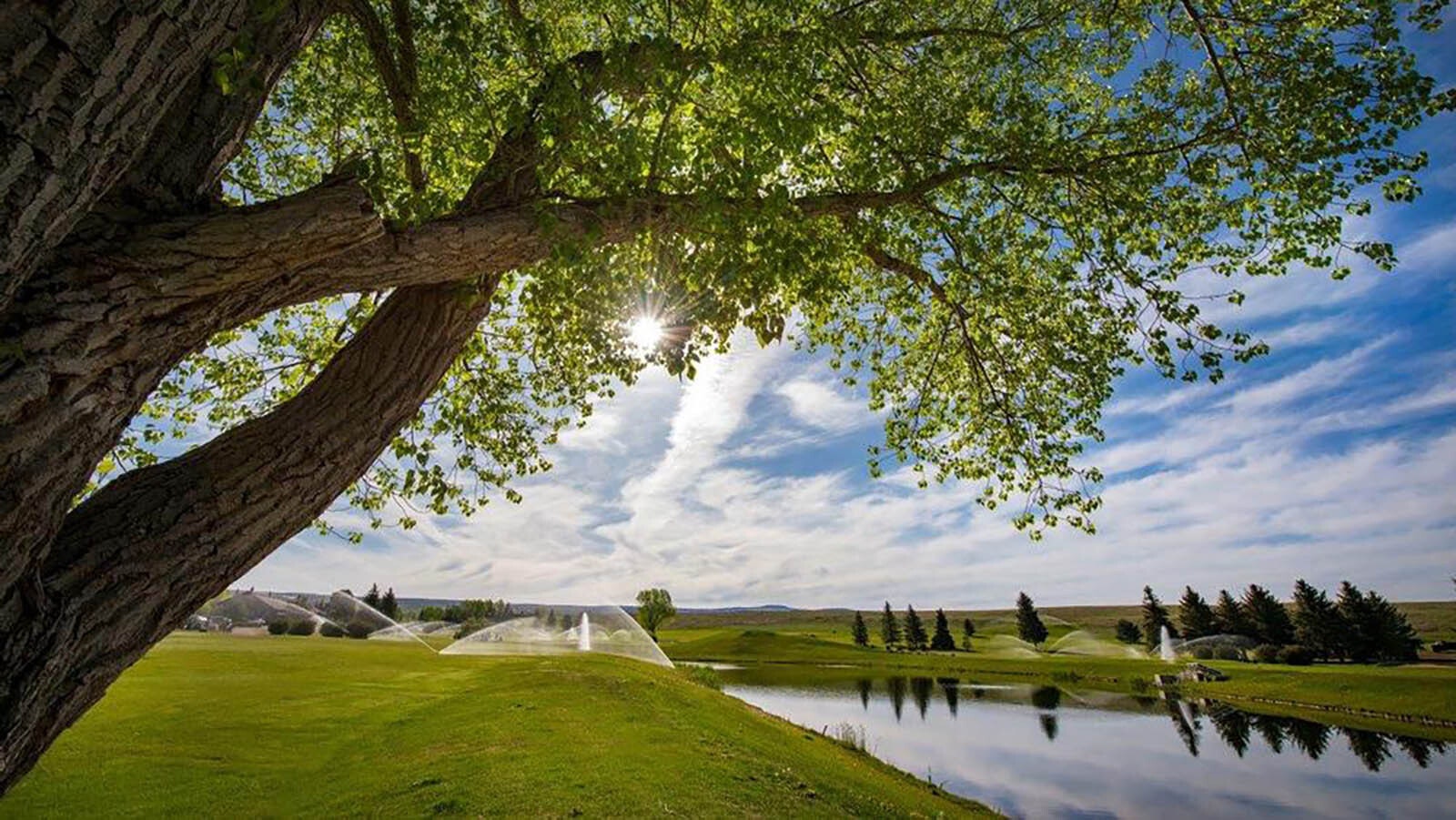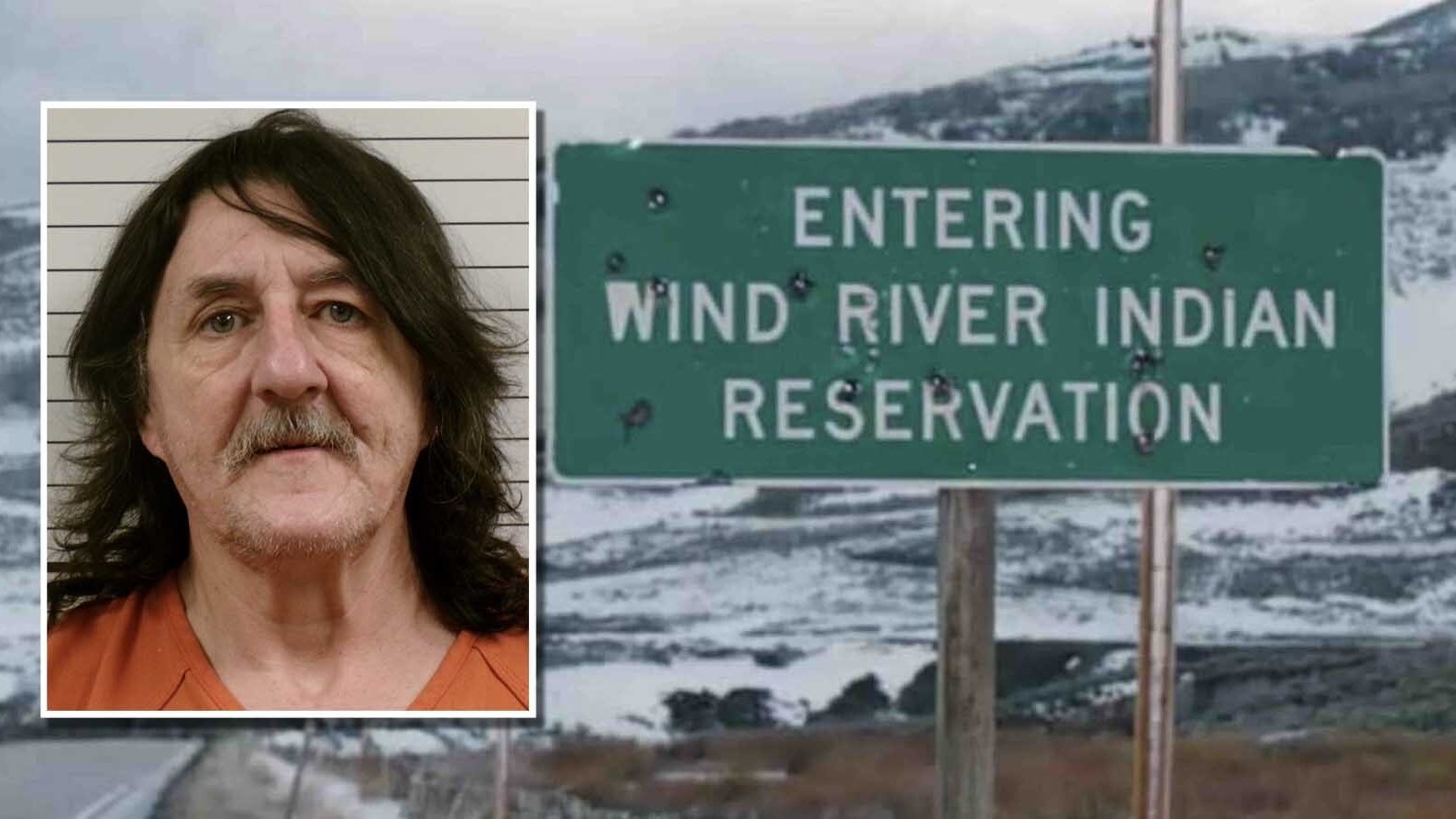The University of Wyoming can drill a water well in Laramie no matter what the city has to say about it, because the state Constitution makes UW unique and cared-for, the Wyoming Supreme Court ruled Wednesday.
UW will use its new well to water the university’s golf course, court documents say.
The case of Laramie v. University of Wyoming unpacks several issues, including whether laws favoring UW are constitutional, whether giving UW water rights abridges Laramie’s authority to regulate its own town workings, and whether UW has to honor a contract it struck in 1965.
But First, A Railroad
The argument started with a railroad.
When Wyoming was still a territory in the 1800s, the Union Pacific Railroad owned large swaths of land in Albany County, including what is now the City Springs — the water source for the town of Laramie.
Union Pacific and Laramie made a deal in 1946, saying Union Pacific had the right to use the flow from the City Springs, and the town of Laramie had the right to any excess.
As part of that deal, neither the town nor railroad could sell off their water rights without written consent from the other.
Union Pacific may have had that rule in mind when it gave that area of land to the University of Wyoming in 1965. The railroad granted the land to the school to use for its campus, and UW agreed at the time not to use it to build new water wells, according to court documents.
Fast Forward To 2019
In 2019, UW filed two applications with the State Engineer’s Office for test wells. It drilled both exploration wells close to the city’s existing Turner wells, digging deeper into the underlying Casper Aquifer than the city’s wells go, court documents say.
Laramie contended in court that one of the new wells violated UW’s 1965 covenant and the school’s promise not to dig water wells on the railroad’s gifted land.
UW reportedly planned to irrigate 212 acres of grass and landscaped areas with the new wells, including its Jacoby Golf Course. It also planned to link with the new water system by running a pipeline under 30th Street in Laramie.
City Says Nah
The State Engineer’s Office granted UW’s applications Nov. 23, 2020.
But first, in August 2020, the Laramie City Council passed an ordinance banning the construction of or connection to new water systems in city limits without a permit.
Laramie cited three concerns as it passed the ordinance. Those were:
- A need to protect the city’s investment in its water infrastructure, and the fiscal integrity of that system.
- A need to protect the city’s drainage and sewage systems from uncontrolled runoff.
- A need to protect the city’s water supply and eliminate possible point source contamination.
The city “repeatedly proposed six solutions” designed to meet UW’s water needs without interfering with the city’s water supply, according to the city’s appeal brief to the high court. It contemplated applying “no ongoing payments” to UW for its municipal water consumption for the golf course.
UW didn’t take up that offer, and instead gave notice it planned to connect the new wells to its water system, says the brief.
Albany County District Court Judge Misha Westby would later cast doubt on the “no ongoing payments” idea, saying Laramie’s court arguments revealed a worry that removing UW from the city’s water system would hurt the city financially.
Legislature Jumps In
In March 2021, state lawmakers got involved, proposing a bill that would give UW the right to build or use any non-potable water system on its property or leases, and to connect its facility to any such water system – regardless of what city ordinances had to say about it.
Sponsored by Rep. Bob Nicholas, R-Cheyenne, the bill met friction in the House, squeaking through with a final vote of 32-27. The Senate was kinder to it, passing it into law on a 21-9 vote.
Laramie sued UW that June on numerous claims. It said the new statute violated the Wyoming Constitution by giving UW special treatment and by giving UW a way to usurp Laramie’s powers. The city also accused UW of breaking its own 1965 agreement with the railroad.
Judge Westby sided with UW, dismissing the city’s case Jan. 5, 2023.
Laramie appealed two months later, and that appeal culminated in the high court’s Wednesday opinion, also siding with the university, penned by Wyoming Supreme Court Justice John Fenn.
King Can't Do ... Much Wrong
The first question the high court tackled was whether UW broke its 1965 contract with the railroad by digging water wells when it said it wouldn’t.
Sovereign immunity is an old concept borrowed from England’s law system that prevents people from suing the government. There are some cases in which people can sue the government, and Wyoming law lays those out in the Governmental Claims Act.
But in 1965 when the railroad gave UW the land gift, the existing law said UW (a faction of state government) enjoyed sovereign immunity for governmental functions — but not for proprietary functions.
Meaning, if UW stepped into the private market, it would become more vulnerable to lawsuit.
Laramie argued that UW has stepped into the private market because the golf course it’s watering charges fees.
UW argued that the act it performed in 1965, of acquiring the land, should be the act under scrutiny here, and that was a governmental function.
The high court decided that UW was engaged in a government function either way: whether the issue is the golf-course watering of 2019 or UW’s land swelling in 1965.
UW isn’t using the wells to generate income or do something that private corporations typically do. Rather, UW is providing for itself to keep tuition low, an idea the state Constitution supports, the court’s opinion says.
So, Laramie can’t sue UW for breaching its 1965 contract with the railroad, the high court added.
Now Who’s Special?
Secondly, Laramie argued that the Legislature’s law giving UW water rights was unconstitutional “special” legislation.
The state Constitution bans many instances of hyper-specific legislation. For example, Wyoming can’t pass a special law granting someone a divorce.
The high court disagreed with Laramie’s argument, writing that the law doesn’t hone in on Laramie’s “township affairs,” but addresses UW, which is already carved out as special under the very document that forbids special laws, the Wyoming Constitution.
Laramie also argued that making a unique water right for UW violates the concept of equal protection under the law.
The high court countered again, saying governments only violate equal protection if applying the law unequally to parties “similarly situated.” Again, the opinion notes, UW is not similarly situated with other entities because the state Constitution specifically provides for it.
UW Is Not A Usurper
Thirdly, Laramie cited Article 3, Section 37 of the state Constitution, which forbids giving a town’s authority to a “special commissioner” beyond the town’s control.
The Legislature didn’t do that, the high court decided, adding that nothing in the 2021 law gives UW the right to interfere with the city’s money or property.
“Any incidental detrimental impact to the city from the University’s development and utilization of its own landscape watering system does not equate to an unconstitutional delegation of municipal powers,” reads the opinion.
If incidental impacts do harm the city’s water systems, the city can seek remedies for that under the state’s water laws, the opinion says in a footnote.
Again, This Law Is Allowed
Lastly, Laramie argued that UW has to comply with the city’s ordinance.
The state Supreme Court said it doesn’t need to decide whether Laramie had the authority to pass that ordinance, because the Legislature’s 2021 law forbids the enforcement of it.
Clair McFarland can be reached at clair@cowboystatedaily.com.





